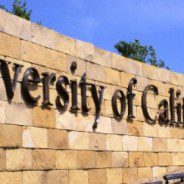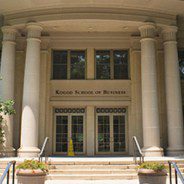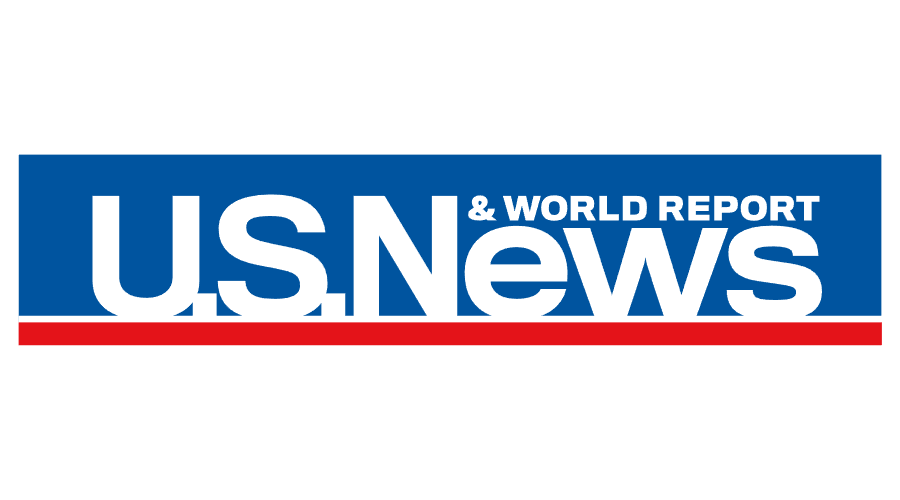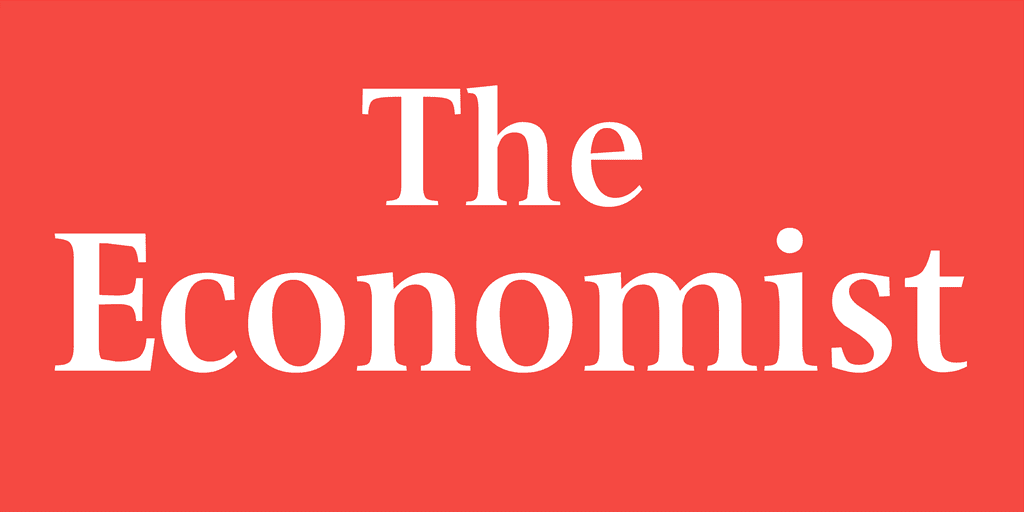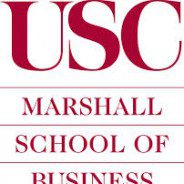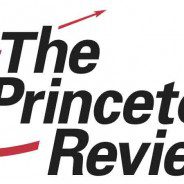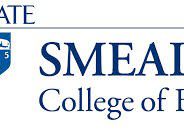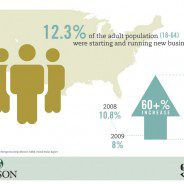Search results for return on investment:
Do MBA Program Rankings Matter?
When attending any graduate or undergraduate program, school rankings tend to carry a lot of weight and have a recognizable impact on future opportunities. For example, attending an elite university such as Harvard will typically provide students with far more job opportunities, higher starting salaries, and a greater possibility of future success compared to a less well-known institution. But does the same hold true for MBA programs, particularly when many MBA applicants have very specific goals and needs?
UC Irvine’s Merage School Shoots Up 19 Spots in Latest Forbes Report
Forbes researchers ranked UC Irvine’s Paul Merage School of Business 42nd in the country as part of its biennial ranking of MBA programs based their return on investment (ROI). Merage catapulted 19 spots above its 2013 ranking and came in 20th among public institutions.
To compile its rankings, Forbes surveyed the alumni of full-time MBA programs who graduated in 2010. To determine ROI, Forbes assessed total alumni compensation, including salary, bonuses and exercised stock options for their first five years out of school as compared to the cost of tuition, required fees and foregone compensation for the two years spent in business school. Continue reading…
Forbes Ranks Kogod No. 65 in List of Best Full-Time MBA Programs
American University’s Kogod School of Business has been ranked Number 65 in Forbes Magazine’s list of the Best Full-Time MBA Programs in the country. Forbes ranked MBA program based on their five-year return on investment through alumni surveys.
According to Forbes, 89 percent of the class of 2014 that landed jobs within three months of graduation accepted positions in the D.C. metro. 37 percent of job attaining alums went into consulting, followed by 16 percent of students who went into financial services. Continue reading…
Mays Ranks in Forbes Top 10 “Best Business Schools”
In a recent Forbes ranking of “Best Business Schools” in the U.S., Mays Business School at Texas A&M University came in 9th among U.S. public universities and 24th overall. Since 2013, Mays has improved five positions in the public rankings and six overall.
Forbes Ranks Fox Among Top Schools for ROI and Job Placement
Forbes has ranked Temple University’s Fox School of Business among the top schools for job placement and return on investment. According to Forbes’ 2015 Best Business School rankings, the Fox Global MBA program has been ranked in the top 65 nationally for ROI and states that the school’s 95 percent job placement rate is “better than the vast majority of schools in the country.”
This is the school’s second consecutive appearance in Forbes’ biennial survey, which was released Sept. 9. Fox joins The Wharton School as the only other business school in Philadelphia to be ranked. Forbes rankings are based on the ROI achieved by students who graduate in the class of 2010. The rankings were evaluated based on a survey of 17,400 alumni from 95 different schools. To determine the rankings for ROI, the students’ total earning in the first five years out of the program were compared to the total cost of the program.
Gabelli EMBA Students Give Chinese Investors Real Estate Advice
The cohort of executive MBA students at the Gabelli School of Business recently advised the China-based lender CreditEase on the best places for Chinese investment in real estate. The consulting project was part of the EMBA program’s capstone course. The cohort of students gave a presentation to the company on August 19, at the firm’s headquarters in Beijing. For the project, students were asked to identify which U.S. cities offer Chinese investors the best potential return on investment in residential real estate.
The 22 student cohort conducted extensive market research to find the best answer for their client. The result of the research was the recommendation of five US locations; New York City (Queens and the Bronx), Philadelphia, Seattle, Houston and San Francisco. One student in the cohort, Colin Cassidy, explained in a press release for Gabelli that the areas chosen were based on specific criteria for their research, such as how quickly the area recovered from the 2007-2008 financial crisis, the local economy’s strength, unemployment rates, real estate taxes and rent-to-buy ratios.
Benefits of Executive MBA Programs for Managers
There are many program options when it comes to choosing the right MBA. Depending on your work schedule and personal commitments, as well as your amount of professional working experience, a part-time or full-time program are both good options. Prospective MBA students also have the option to complete an Executive MBA program.
Executive MBA programs are designed for mid-level managers and executives who have five or more years of management experience. There are many benefits of completing an Executive MBA program rather than a regular part-time MBA as an experienced business manager. It is a great type of program for those looking to build upon the business skills they have learned over years of experience as well as a way to learn new skills and gain knowledge on new markets and strategies.
Popularity of Sustainable Business MBA Grows
Many MBA programs now offer concentrations and curriculum that focus on sustainable business. Corporations are now required to be more environmentally conscious than ever before. A sustainable business MBA can help professionals gain the knowledge that is needed to operate and create successful environmentally conscious businesses. According to thebestschools.org, “The MBA in Sustainability degree equips business professionals to help companies and organizations achieve profitability while maintaining environmental responsibility.”
These MBA programs, often called “Green MBAs,” teach students the skills necessary for earning profits through methods that reduce harm to the environment and society. Not only do these programs help students learn how to run environmentally sustainable businesses, but many also teach corporate social responsibility.
The Sustainable Business Institute explains that corporate sustainability is important because, “private and public business choices enormously impact the quality of life in our communities.” The Institute also explains that, “Effectively managing our business footprint addresses current market dynamics while ensuring a better quality of life for future generations. The bottom line is sustainable business practices make good business sense. Corporate sustainability offers a compelling return on investment by driving innovation, managing risk, and improving stakeholder relations.”
Leavey Ranked No. 4 for ROI
The Leavey School of Business has been ranked no. 4 in the country for return on a student’s college investment by PayScale. PayScale’s College ROI rankings are based on a “20 Year Return on Investment,” measured as the additional salary over 20 years that a graduating student would earn above that of a high-school graduate, after subtracting the cost of the education. Santa Clara business majors reported a median 20-year ROI of $756,200, which is the fourth-best in the nation.
A degree from Santa Clara University was ranked in the top 5 percent in the survey for return on investment. The school was ranked no. 51 out of 1223 colleges or universities that were ranked by PayScale. Among the 407 private, nonprofit institutions on the list, Santa Clara’s ROI ranked no. 27, which is in the top 7 percent of the rankings. Among 81 California schools, SCU was ranked at no. 9, which is part of the top 12 percent.
Executive MBA Graduates Get Higher Salary According to Survey
Executive MBAs are the first choice for people who don’t want their education to interrupt the career they’ve already started. With courses spread out over weekends, you can keep your career and become more valuable to your company at the same time. A new survey was just released that quantifies how much more valuable you can become. Continue reading…
Davis Hosts ROI Panel and Networking Mixer
UC Davis Graduate School of Management will be hosting a Return on Investment Panel and Networking Mixer. The event will be held April 9 form 5:30 to 7:30 p.m. at the Sacramento Education Building. During the event, prospective students can join UC Davis students, alumni and staff to learn first-hand how an MBA will expand your career, network and your return on investment. This event is free to attend and is open to all prospective students. Those interested in attending the event can complete a registration form online.
Business Schools MBA Rankings
Below, we list the best business school MBA rankings from leading news publications, including U.S. News & World Report, Financial Times, Bloomberg, Forbes, and The Economist.
According to schools and students, these publications are the most relied upon ranking resources. Each publication has a different methodology for their respective rankings. The common factors include student salary post-graduation, quality of faculty, quality of the curriculum, and overall return on investment. There are other factors to consider, so be sure to review each publication's official methodology to better understand their MBA rankings.
Why Should I consider MBA rankings when deciding on a school?
Major publication rankings are a great resource to find measurable outcomes for students who complete graduate business programs. However, they should not be the only factor you consider. There are many schools that have accredited programs that do not participate in these rankings. In addition, applicants are also encouraged to research each progarms overall fit, cost, and location. This process is important when comparing these factors to your personal career goals.
Related MBA Ranking Content
Sorry, we couldn't find any posts. Please try a different search.
Full-Time MBA
Rice University Full-Time MBA Program Structure
Rice University’s Full-Time MBA is a two-year program designed for students looking to transform their careers and develop the quantitative chops and workplace skills that employers want.
Curriculum
Rice University full-time MBA students are required to complete 60 credits for graduation.
In the first year, students embark on the Global Field Experience (GFE), a hands-on international project that’s part of the core curriculum. This immersive course provides valuable global consulting experience, setting students up to become effective global business leaders. Working in small teams, students tackle real business challenges for local companies and non-profits, gaining practical insights and making a meaningful impact.
During the second year of the program, students can tailor their MBA journey to their career aspirations by choosing from a wide array of electives. Popular electives include Managing Energy Transitions, The New Enterprise, Corporate Rivalry, genAI: Strategy and Innovation, and Scandals and Reputation Management.
Specializations for the Full-Time program include accounting, energy, entrepreneurship, finance, healthcare, leadership, marketing, operations management, real estate and strategic management. The MBA program also has a STEM designation.
Full-Time MBA Rankings
- #1 Best MBA in Texas – (based on global rankings) Financial Times, 2024
- #1 Graduate Entrepreneurship Program – Princeton Review and Entrepreneur magazine, 2020, 2021, 2022, 2023, 2024
- #21 Best MBA in the U.S. – (based on global rankings) Financial Times, 2024
- #19 Best Full-Time MBA Program in the U.S. – Bloomberg Businessweek, 2023-2024
- #29 Best MBA Program – U.S. News and World Report
- #24 Best MBA Program – Fortune, 2024
- #5 Best MBA for Finance – Princeton Review, 2023, 2024
Class Profile
Full-Time MBA enrollment is 166 students. 36% of the full-time class are women, 30% are underrepresented minority students and 42% are international students. These students earned an average GMAT score of 702, a GPA of 3.46 and their average work experience is five years. These figures are based on a three-year average.
Career Statistics
The most recent graduating class received an average base salary of about $150,000. An important part of business school is the return on investment (ROI). Even without a tuition break, the ROI of a two-year business education gives a lifetime salary ROI of 20%. Students accepted jobs in three industries in nearly equal percentages: consulting claimed 26%, followed by technology at 20% and financial services at 19%. Around 12% of students went into the energy field after graduation, and just over 7% went into healthcare. 94% accepted offers within three months of graduation, and 100% of first-year MBA students landed an internship.
Tuition, Scholarships, and Financial Aid
The projected two-year tuition for the Rice Business Full-Time MBA program is $147,000. Students will submit an enrollment deposit of $2,500 upon acceptance applied toward fall semester tuition costs. All payments are eligible to be covered by financial aid and private loans. Semester payment plans are also available through the cashier’s office.
Merit-based scholarships are available to those applying to the Full-Time MBA program. All students are automatically considered for a scholarship. Over 75% of the most recent incoming class of full-time students received some merit-based or name scholarships with the average award covering over 50% of tuition costs.
Admissions
To be considered for admission to the Rice Business Full-Time MBA Program, applicants must complete the following steps for application:
Complete an online application, required personal essays, and a professional resume.
You must also submit a standardized test score for admission to the program (GMAT or GRE).
You’ll need to submit one confidential, professional recommendation from a current or previous supervisor. If you don’t have one from your supervisor, you should submit two confidential recommendations highlighting your professional abilities.
There is a $200 application fee payable online or by check.
Class of 2027 Full-Time MBA Application Deadlines
| DECISION ROUND | APPLICATION DEADLINE | ROLLING DECISIONS RELEASED |
| Round 1 | October 14, 2024, 11:59 PM CT | Starting December 9, 2024 |
| Round 2 | January 6, 2025, 11:59 PM CT | Starting March 10, 2025 |
| Round 3 | March 10, 2025, 11:59 PM CT | Starting April 21, 2025 |
| Round 4* | April 28, 2025, 11:59 PM CT | Rolling decisions on space-available basis |
*The Round 4 deadline is for domestic candidates only (U.S. citizens or permanent residents).
Consortium Application Deadlines
| DECISION ROUND | APPLICATION DEADLINE | ROLLING DECISIONS RELEASED | ||||||
|---|---|---|---|---|---|---|---|---|
|
Rice Jones Full-Time MBA FAQ’s
Who recruits at Rice Business?
Employers who recruit include Google, Amazon, EY, Goldman Sachs and ExxonMobil, among many others.
What MBA programs are available at the Jones Graduate School of Business besides the Full-Time program?
The school has a Professional MBA (evening and weekend options), Executive MBA, Online MBA and Hybrid MBA.
Is the same degree granted in each MBA program?
Yes, all students in our different MBA formats receive the same Rice MBA degree.
Marshall Exec Ed Program Accepting Registration
The Marshall School of Business is now accepting registration for its next Supply Chain Management Online course. The next course will be held Feb. 25 to March 18. Prospective Executive Education students can register for individual courses or as a group.
During the program, students will learn how to evaluate a firm’s supply chain by creating effective designs and policies to maximize a return on investments and improve their ability to serve customers. The online course will help students to identify financial and operational performance.
Stillman Rated Best by Princeton Review
The Princeton Review has rated the Stillman School of Business a “Best Business School.” This is the eighth year in a row that Stillman has received this honor. Only those schools accredited by the Association to Advance Collegiate Schools of Business (AACSB International) are considered for this award, a distinction earned by only a few of the world’s business schools.
Ratings are based on review of institutional data and an 80-question student survey that focuses on academic experience, admissions selectivity, career preparation as well as quality and accessibility of professors. Reasons for student satisfaction at the Stillman School of Business is the school’s ethics-centered education, caring faculty and its vibrant learning centers.
Smeal Ranked by Businessweek
The Penn State Smeal College of Business’s MBA Program has been ranked no. 2 in return on investment according to the latest Bloomberg Businessweek rankings. Businessweek based its return on investment measure on the cost of the program, two years of foregone wages and the average salary increase students experience after graduating. In a similar assessment of MBA years-to-payback conducted by Forbes in 2013, Smeal was ranked No. 7.
Smeal was ranked no. 40 overall in Businessweek’s most recent MBA assessment. It was also ranked no. 16 among public business schools. The publication’s final rankings were based on the results of student and employer surveys and a measure of faculty research.
Zicklin GEM U.S. Report Issued
The happiness levels of American women entrepreneurs are surging as they assume the role of successful business owner, according to the 2013 Global Entrepreneurship Monitor (GEM) U.S. Report issued by Babson College and Baruch College. Established female business owners ranked their well-being more than twice as high as non-entrepreneurs and non-business owners.
The GEM U.S. Report is authored by Babson professors Donna J. Kelley, PhD, Abdul Ali, PhD, Candida Brush, PH.D, Andrew C. Corbett, PhD, and Mahdi Majbouri, PhD, with Thomas Lyons, PhD, and Edward G. Rogoff PhD, contributing from Baruch College.
Business Schools Should Think of Students As Customers, According to BU Dean
When Kenneth W. Freeman became the Dean of the Boston University School of Management, a colleague told him that business school students are the university’s products. However, Dean Freeman believes that students are actually the university’s customers, as he recently explained in an article in Businessweek.
Business schools are facing decreases in the number of applications they receive and challenges from other models of business education. Potential students are questioning the return on investment from a business school education, since the economy is weak and the cost of tuition is increasing. Some employers are beginning to question the utility of a business school degree compared to other backgrounds. Dean Freeman believes that business schools will have to fundamentally alter the “customer experience” of management education to convince potential students and employers that an MBA is worth the investment.
Dean Freeman hopes that Boston University can transform itself to become more appealing to students using the core principle of transformation: “engage the entire organization in creating a memorable mission and translate it into an active strategy.” Freeman says that faculty members often perform outstanding individual work within business schools, but that they are not often mobilized to work to reshape the entire business school.
This is the 100th anniversary of the founding of Boston University’s School of Management, and the faculty have launched a transformation of the school’s undergraduate and graduate business curricula. Dean Freeman believes that transformation can be achieved through a focus on faculty members’ and students’ desires to make a difference in the world. Freeman envisions a curricula for Boston University that emphasizes the influence business can have on society and the development of innovative and ethical leadership. The faculty intends to make BU’s School of Management preeminant in sustainability, social enterprise, health and life sciences, and digital technology. Faculty have also worked to develop an ethical focus throughout the curriculum, and have implemented innovations in teaching and learning. Freeman believes that these factors appeal to the student as a customer: “We can best serve our student-customers by putting them at the center of an experience that moves outward from the classroom to the community and the world while taking value—in all its senses—into account.”


